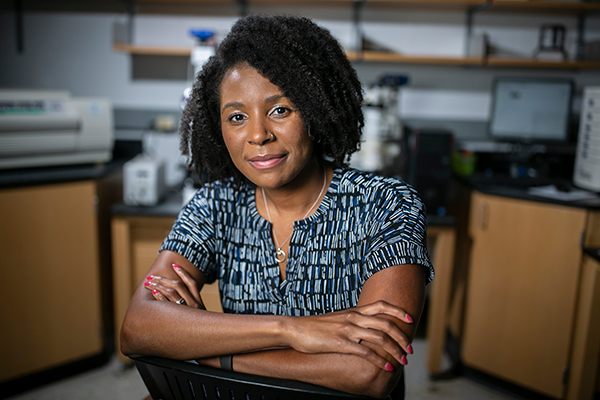
Humans are born with all the nerve cells they will ever have, and in each of those nerve cells live about two million mitochondria — tiny power generators that keep the cell functioning properly. As mitochondria age or become dysfunctional, the cell systematically removes them and replaces them with newer models.
Neurobiologist Chantell Evans, PhD, wants to know more about this complex process. “How does the cell know how to maintain all of those mitochondria? How does it keep track of who is healthy, who’s damaged, who needs to be replaced, and how many new mitochondria need to be made?” she says.
Disruptions in the elaborate system can lead to nerve cell dysfunction and death, which contributes to neurodegenerative diseases such as Parkinson’s disease and Alzheimer’s disease.
Evans joined Duke’s Department of Cell Biology in September 2021 to continue her work investigating the pathways that contribute to mitochondrial maintenance in nerve cells, in hopes that understanding the pathways could help identify the missteps associated with neurodegeneration and lead to the development of preventative therapeutics for neurodegenerative diseases.
Evans said she came to Duke because of the emphasis the university places on inclusion and the opportunity she has to make a difference.
“At some other institutions, there weren’t a lot of women of color in senior leadership roles,” she said. “To see a school that is valuing that and putting those people in senior roles said a lot about the institution. I also wanted to go somewhere where I felt that I was going to receive a lot of support and mentoring as a junior faculty member. I’m excited to start my lab here at Duke and look forward to future collaborations and discoveries.”
More About Duke Science and Technology Research:
Support Duke Science and Technology
To support research and learn more about Duke Science and Technology, visit dst.duke.edu or email scienceandtechnology@duke.edu.
Story originally published in DukeMed Alumni News, Winter 2021
Story originally published in DukeMed Alumni News, Winter 2021